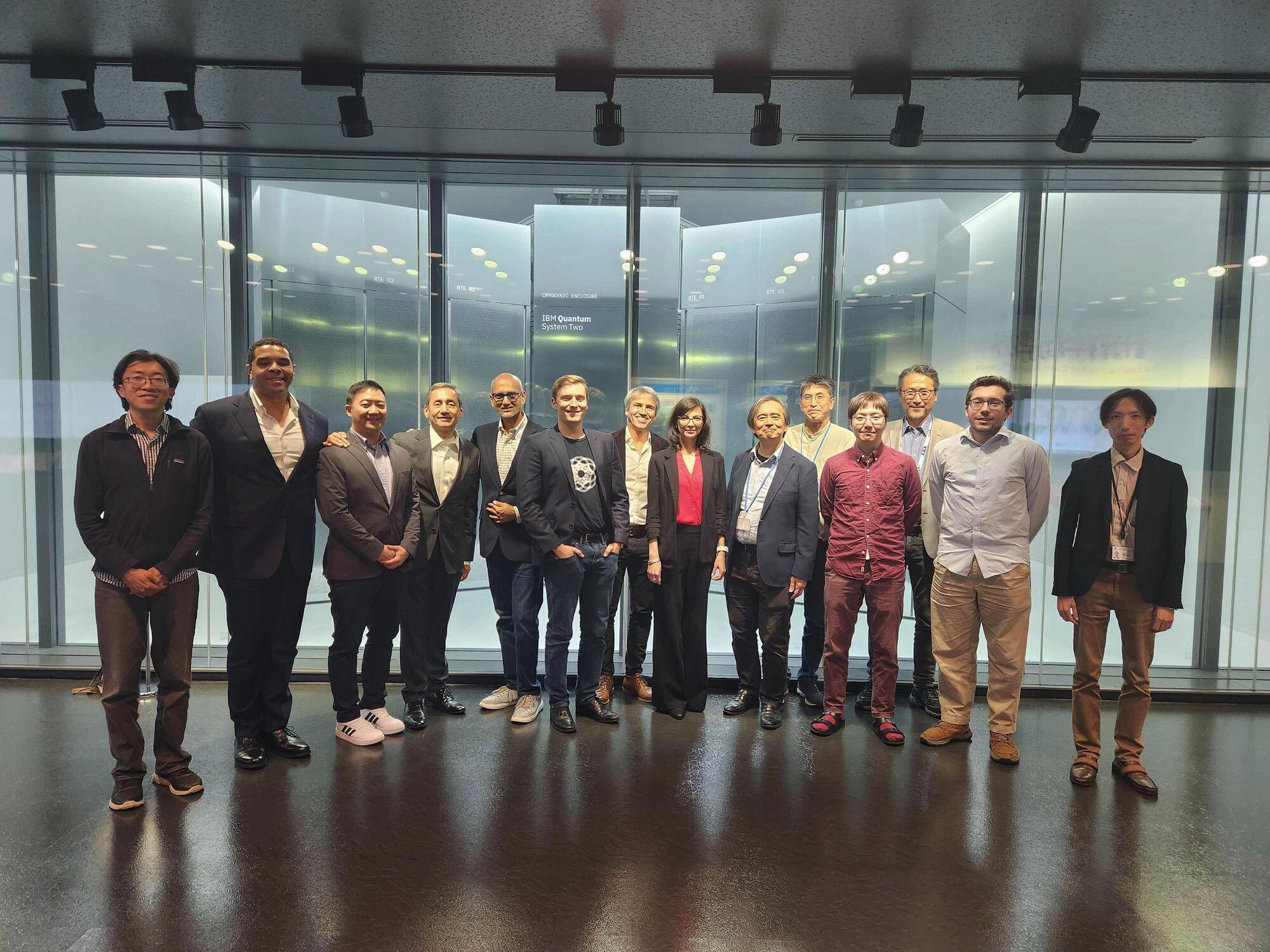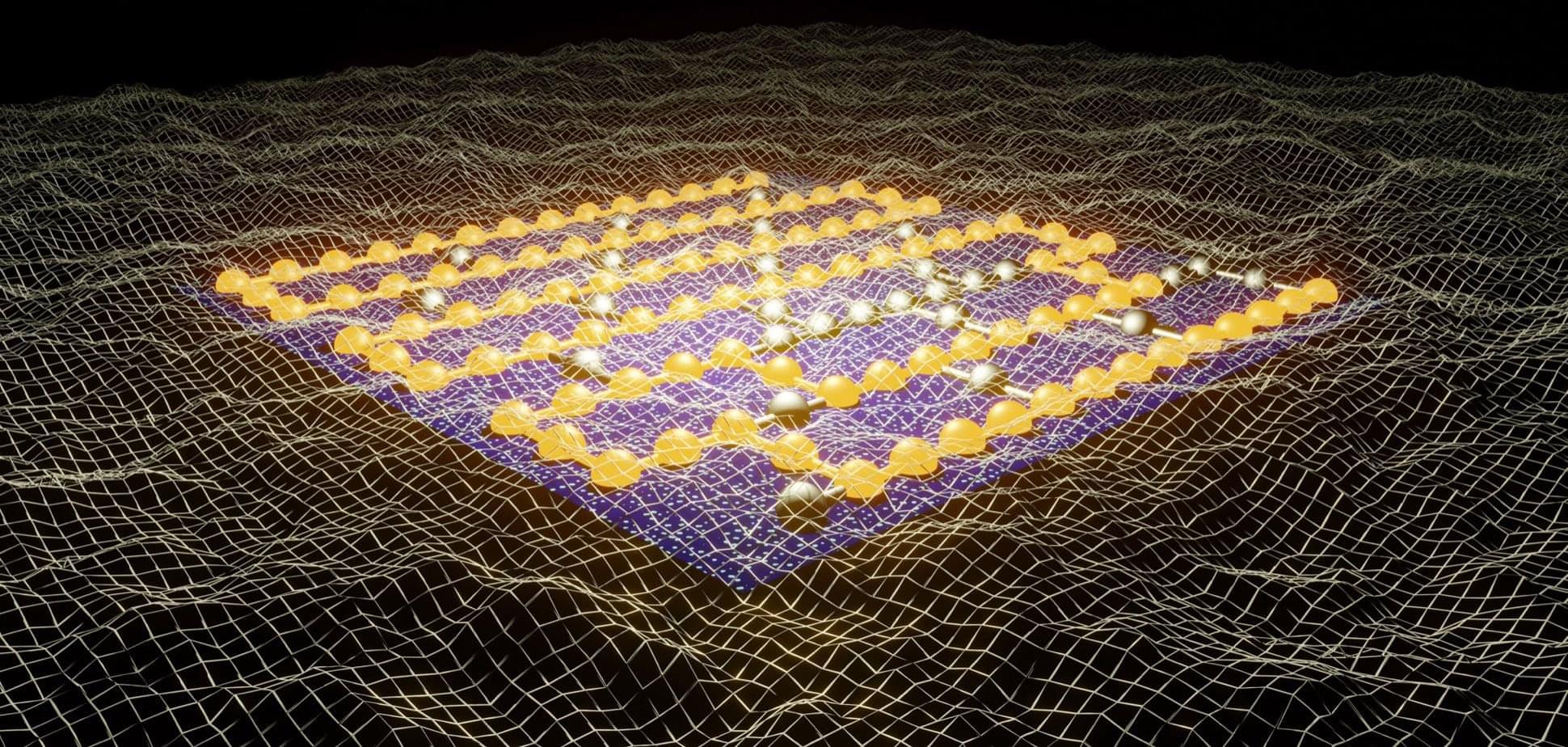Quantifying so-called quantum magic is essential for realizing a universal quantum computer. A proposed “magic meter” could achieve such a goal.
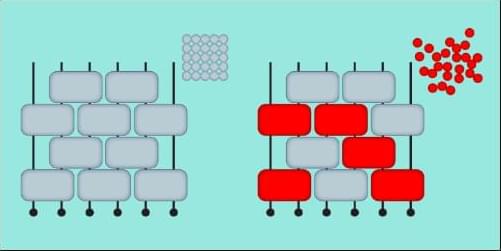

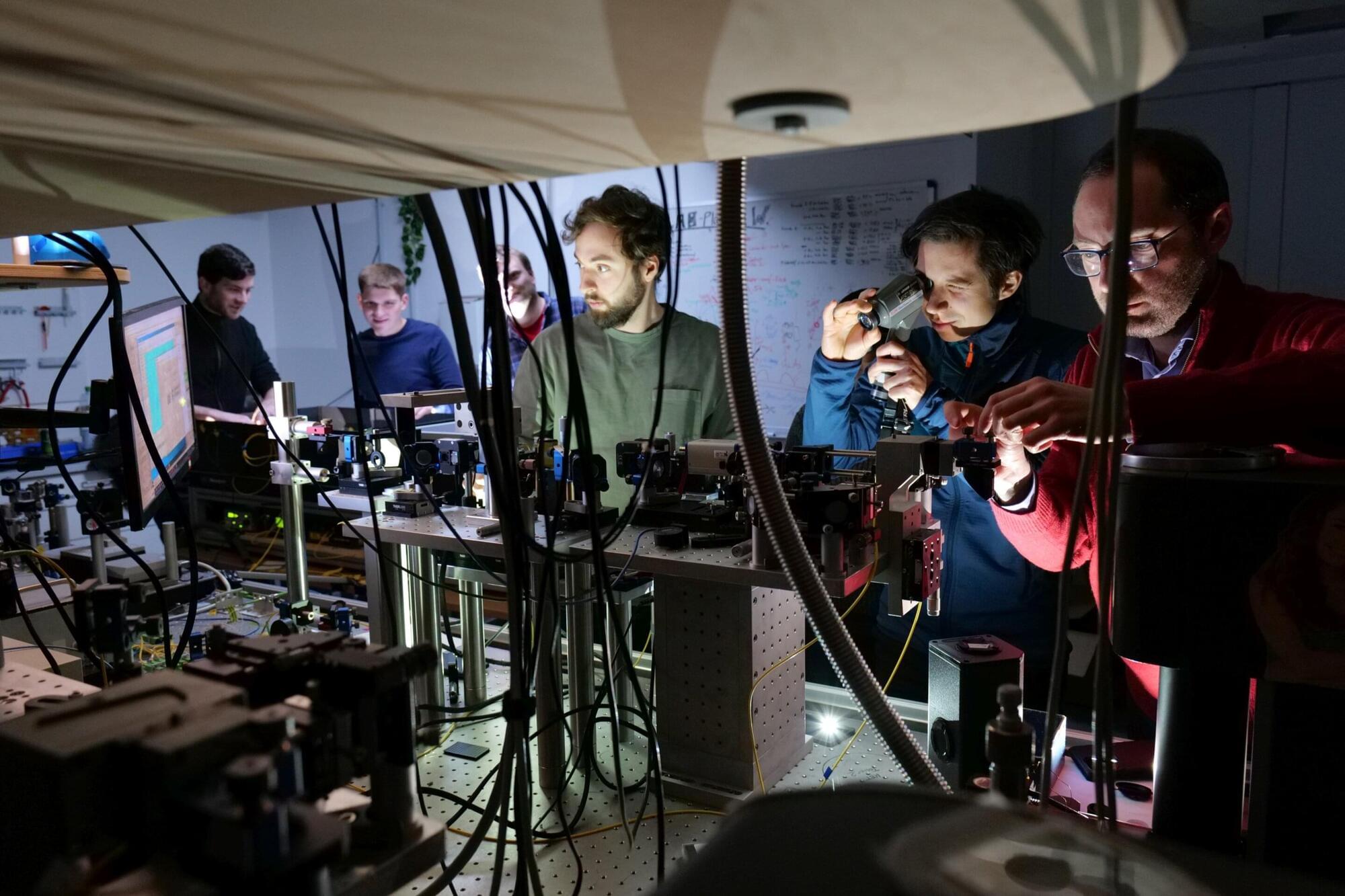
Everyday life on the internet is insecure. Hackers can break into bank accounts or steal digital identities. Driven by AI, attacks are becoming increasingly sophisticated. Quantum cryptography promises more effective protection. It makes communication secure against eavesdropping by relying on the laws of quantum physics. However, the path toward a quantum internet is still fraught with technical hurdles.
Researchers at the Institute of Semiconductor Optics and Functional Interfaces (IHFG) at the University of Stuttgart have now made a decisive breakthrough in one of the most technically challenging components, the quantum repeater. They report their results in Nature Communications.
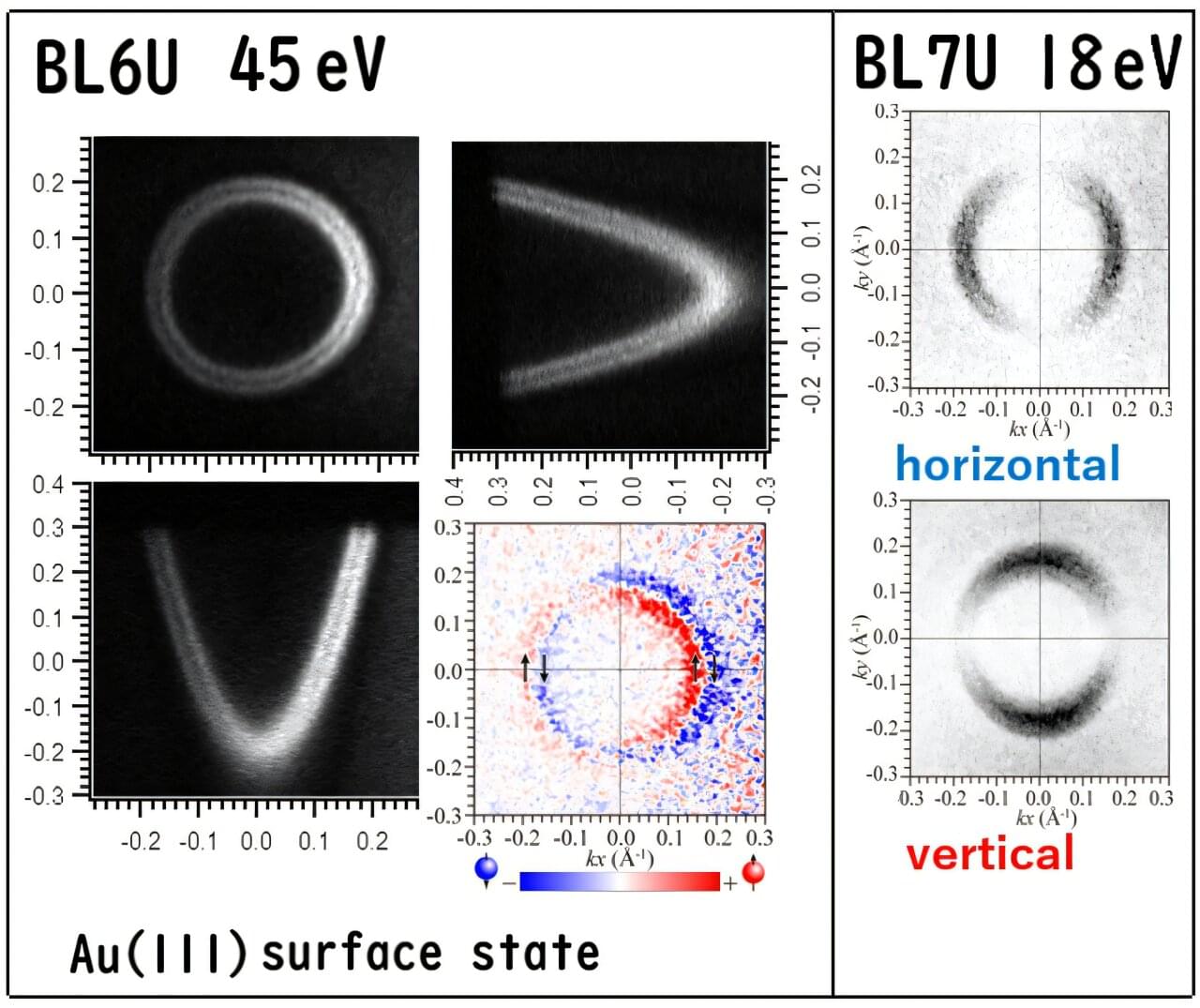
Researchers at the Institute for Molecular Science (IMS) have definitively resolved a two-decade-long controversy regarding the direction of electron spin on the surface of gold.
Using a state-of-the-art Photoelectron Momentum Microscope (PMM) at the UVSOR synchrotron facility, the team captured complete two-dimensional snapshots of the Au(111) Shockley surface state, mapping both the electron’s spin (its intrinsic magnetic property) and its orbital shape in a projection-based measurement. The work is published in the Journal of the Physical Society of Japan.
The experiment unambiguously confirmed the Rashba effect—where an electron’s motion is coupled to its spin—by assigning a clockwise (cw) spin texture to the outer electron band and a counterclockwise (ccw) texture to the inner band when viewed from the vacuum side.
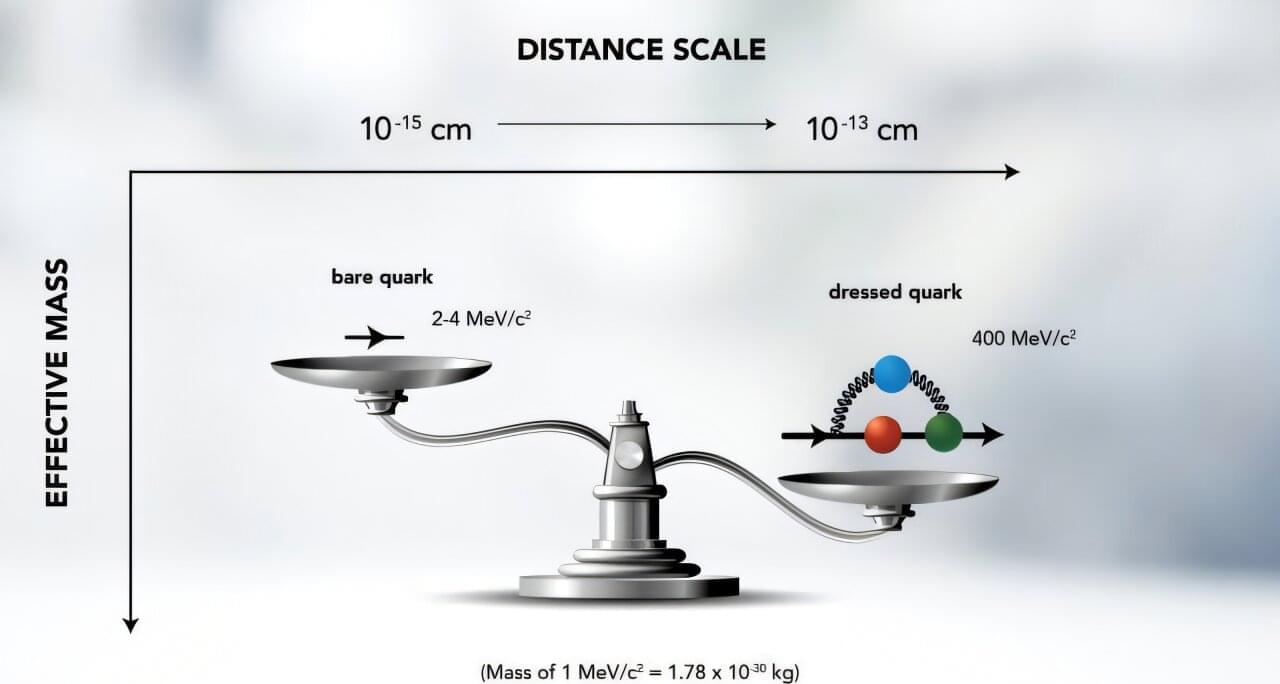
Deep in the heart of the matter, some numbers don’t add up. For example, while protons and neutrons are made of quarks, nature’s fundamental building blocks bound together by gluons, their masses are much larger than the individual quarks from which they are formed.
This leads to a central puzzle … why? In the theory of the strong interaction, known as quantum chromodynamics or QCD, quarks acquire their bare mass through the Higgs mechanism. The long-hypothesized process was confirmed by experiments at the CERN Large Hadron Collider in Switzerland and led to the Nobel Prize for Peter Higgs in 2013.
Yet the inescapable issue remains that “this mechanism contributes to the measured proton and neutron masses at the level of less than 2%,” said Victor Mokeev, a staff scientist and phenomenologist at the U.S. Department of Energy’s Thomas Jefferson National Accelerator Facility.

Optical quantum computers are gaining attention as a next-generation computing technology with high speed and scalability. However, accurately characterizing complex optical processes, where multiple optical modes interact to generate quantum entanglement, has been considered an extremely challenging task.
A KAIST research team has overcome this limitation, developing a highly efficient technique that enables complete characterization of complex multimode quantum operations in experiment. This technology, which can analyze large-scale operations with less data, represents an important step toward scalable quantum computing and quantum communication technologies.
A research team led by Professor Young-Sik Ra from the Department of Physics has developed a Multimode Quantum Process Tomography technique capable of efficiently identifying the characteristics of second-order nonlinear optical quantum processes that are essential for optical quantum computing.

